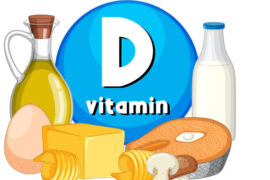Monitoring and addressing nutritional deficiencies are crucial because calorie requirements vary throughout life’s different stages, adapting to physical attributes and changing circumstances. Caloric needs depend on factors such as physical activity level, age, height, weight, co-existing health conditions, and the unique demands of pregnancy and lactation. In addition to meeting energy needs, it’s essential to be mindful of common micronutrient deficiencies, including Vitamin A, B, C, D, Calcium, Folate, Iodine, and Iron, as these deficiencies can have profound health implications. Proper nutrition and supplementation when necessary, can help ensure individuals receive the essential nutrients, they need to support their overall health and well-being at every life stage.
In an interview with HT Lifestyle, Sweedal Trinidade, HOD Dietary Services at PD Hinduja Hospital and MRC in Mahim, revealed the the micronutrient deficiencies and steps to overcome them –
Iron Deficiency:
1. Iron deficiency, often leading to anemia, is a significant concern, particularly among young girls and pregnant women.
2. Solution: WHO recommends iron and folic acid supplementation for women of reproductive age to improve iron status.
3. Dietary sources:
- Heme sources: Red meat, organ meat, and shellfish are rich in heme iron with good bioavailability.
- Non-heme sources: Kidney beans, pumpkin seeds, sesame seeds, squash seeds, garden cress seeds, sunflower seeds, and black dates are sources of non-heme iron, though bioavailability is lower.
Vitamin A Deficiency:
1. Vitamin A deficiency can result in vision problems and increased susceptibility to infections.
2. Solution: Vitamin A supplementation is effective in preventing deficiency in women and children, but excess intake can lead to toxicity.
3. Dietary sources: Beta carotene-rich fruits and vegetables like carrots, spinach, broccoli, bell peppers, pumpkins, grapefruit, cantaloupe, and sweet potatoes are good sources.
Vitamin D Deficiency:
1. Vitamin D is crucial for calcium absorption, bone health, and immune function.
2. Solution: Adequate sunlight exposure and dietary sources help maintain Vitamin D levels.
3. Dietary sources: Fish, fish oil supplements, cheese, and fortified milk are sources of Vitamin D.
Vitamin B12 Deficiency:
1. Vitamin B12 is essential for brain and neurological function.
2. Deficiency can lead to anemia and neurological issues.
3. Dietary sources: Shellfish, egg yolk, milk products, and seaweed are good sources.
Deficiencies can occur in those following fad diets or a vegan lifestyle.
Iodine Deficiency:
1. Iodine is necessary for thyroid hormone production, which regulates metabolism and growth.
2. Solution: Use of iodized salt and consumption of iodine-rich foods help overcome deficiency.
3. Dietary sources: Fish, eggs, dairy products, and seaweed are rich sources of iodine. WHO recommends the use of fortified food-grade salt to address this deficiency.
It’s important to note that not only lack of access to certain nutrients but also dietary choices, including fad diets and strict restrictions (e.g., veganism), can contribute to nutritional deficiencies. Maintaining a balanced and diverse diet is essential to meet nutritional requirements and promote overall health. Consulting with healthcare professionals or registered dietitians can provide personalized guidance on addressing and preventing nutritional deficiencies.
Disclaimer:
The information contained in this article is for educational and informational purposes only and is not intended as a health advice. We would ask you to consult a qualified professional or medical expert to gain additional knowledge before you choose to consume any product or perform any exercise.








